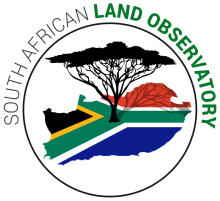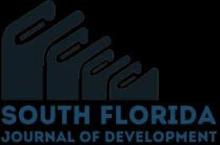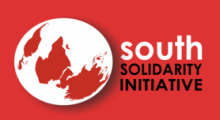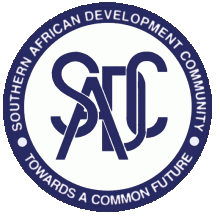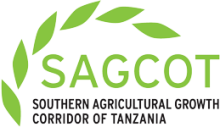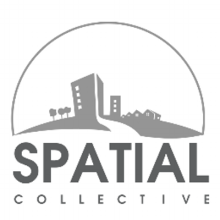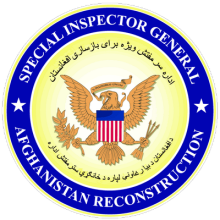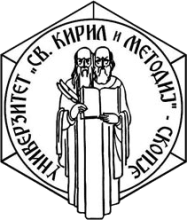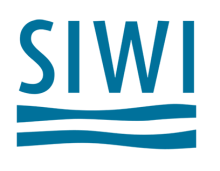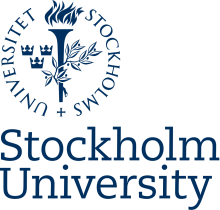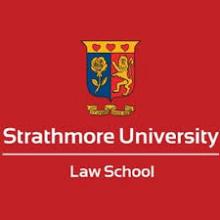La Biblioteca de la Tierra incluye recursos de más de 1.890 proveedores de información nacionales e internacionales. Aprenda más sobre las organizaciones e instituciones que utilizan el Land Portal para compartir sus investigaciones, datos e historias con acceso abierto.
South African Land Observatory
The South African Land Observatory is an initiative whose overall objective is to promote evidence-based and inclusive decision-making over land resources in South Africa. As its name ‘Observatory’ suggests, it collects data and information on land. The initiative is a repository of what is published on land in South Africa and on the events that take place around land in South Africa. In addition, it makes user-friendly land-based information available to all stakeholders with the aim of creating an informed land community in South Africa, through facilitating access to data, information and networking. It is, most importantly, a one-stop help desk for the land community to debate the pressing questions of land ownership and land use in South Africa.
South African Legal Information Institute
The Southern African Legal Information Institute (SAFLII) is an online repository of legal information from South Africa that aims to promote the rule of law and judicial accountability by publishing legal material for open access in line with the objectives of the global Free Access to Law Movement.
SAFLII also hosts legal materials from other countries in the region, which are obtained through partnerships and collaborative efforts with governments, courts, law societies and more recently through linking to other Legal Information Institutes being established in these regions.
SAFLII's projects have been commended by the Southern African Chief Justices Forum, The South African Parliament as well as the Office of the Chief Justice.
SAFLII was previously a project of the South African Constitutional Court Trust and is currently in operation from within the Democratic Governance and Rights Unit (DGRU) at the University of Cape Town. It is the largest online free-access collection of journals, judgments and legislation from South Africa
South Asian Network for Development and Environmental Economics
The South Asian Network for Development and Environmental Economics (SANDEE)is a regional network that uses economic tools and analyses to address South Asia's environmental challenges. It is based on the premise that solutions to economic development concerns and environmental problems are integrally linked.
SANDEE brings together South Asian researchers and institutes interested in the inter-connections among development, poverty and the environment. Its main goal is to build the professional skills required to enable South Asians to address local and global environmental concerns. SANDEE works in seven countries in South Asia – Bangladesh, Bhutan, India, Maldives, Nepal, Pakistan and Sri Lanka.
SANDEE was launched in November 1999 and is hosted by the International Centre for Integrated Mountain Development (ICIMOD), Kathmandu, Nepal. SANDEE was previously based at IUCN-the World Conservation Union, Nepal.
South Dakota State University
South Dakota State University is a public research university in Brookings, South Dakota. Founded in 1881, it is the state's largest and most comprehensive university and the oldest continually-operating university in South Dakota.
South East Asia Journal of Contemporary Business, Economics and Law
South East Asian Journal of Contemporary Business, Economics and Law (SEAJBEL), an open-access journal, is peer-reviewed and published in April, August and December annually. The journal accepts contributions in English only. SEAJBEL is providing scholars the best in theory, research, and methodology as well as providing platform to professionals and academics to share their ideas, knowledge and findings particularly in the region of South East Asia. The main objective of this journal is to provide a channel for the publication of articles based on original research as well as commentaries on a range of areas including management, marketing, finance, accounting, taxation, economics, public policy, law and other related topics.
South Florida Journal of Development
The South Florida Journal of Development (SFJD) arose from the perception of some professors about the lack of means of disseminating the theme of development in scientific articles. It is a bimonthly publication whose objetive is to disseminate knowledge in the area of development by means of the publication of scientific articles that present original contributions, both empirical and theoretical.
South Solidarity Initiative
About us
The South Solidarity Initiative (SSI), set up in April 2013, is a knowledge-activist hub currently hosted byActionAid India. The SSI aims to encourage critical debate and policy intervention on international issues related to India, be in solidarity with social movements and progressive actors in the south and push for alternatives that articulate a new internationalism.
Our key areas of work include trade, investment, agriculture, land, development aid and public services. We aim to conduct research and analysis on India’s role abroad and engagement with various southern forums (such as BRICS, IBSA) and international institutions.
We will contribute to south-south solidarity by facilitating platforms (through workshops, conferences, people to people exchanges) in Asia, Africa and Latin America for activists, researchers and academics to engage in policy and academic debate.
Southern Africa Food Lab
The Southern Africa Food Lab (Food Lab) is a multi-stakeholder initiative that grapples with questions around food systems in southern Africa to foster long-term food security in the region. The initiative brings together diverse, influential stakeholders in the regional food system in order to respond to systemic issues in creative ways and to inspire change in how we think about and act on complex social challenges. The Food Lab facilitates dialogue between these stakeholders to bring about collaborative learning, foster innovations and experimental action towards a just and sustainable food system.
Southern Africa Resource Watch
Advocacy and research organisation, aiming to monitor corporate and state conduct in the extraction and beneficiation of natural resources in Southern Africa region, in particular assessing to what extent these efforts contribute to sustainable development”.
Southern African Development Community
The Southern African Development Community (SADC) was established as a development coordinating conference (SADCC) in 1980 and transformed into a development community in 1992. It is an inter-governmental organisation whose goal is to promote sustainable and equitable economic growth and socio-economic development through efficient productive systems, deeper co-operation and integration, good governance and durable peace and security among fifteen Southern African Member States.
The main objectives of Southern African Development Community (SADC) are to achieve economic development, peace and security, and growth, alleviate poverty, enhance the standard and quality of life of the peoples of Southern Africa, and support the socially disadvantaged through Regional Integration. These objectives are to be achieved through increased Regional Integration, built on democratic principles, and equitable and sustainable development.
The objectives of SADC, as stated in Article 5 of the SADC Treaty (1992) are to:
- Achieve development and economic growth, alleviate poverty, enhance the standard and quality of life of the people of Southern Africa and support the socially disadvantaged through Regional Integration;
- Evolve common political values, systems and institutions;
- Promote and defend peace and security;
- Promote self-sustaining development on the basis of collective self-reliance, and the inter-dependence of Member States;
- Achieve complementarity between national and regional strategies and programmes;
- Promote and maximise productive employment and utilisation of resources of the region;
- Achieve sustainable utilisation of natural resources and effective protection of the environment;
- Strengthen and consolidate the long-standing historical, social and cultural affinities and links among the people of the Region.
Southern African Regional Institute for Policy Studies
SARIPS is a semi-autonomous technical arm of the SAPES TRUST that was established in 1998 to undertake research, training and policy dialogue. The SAPES Trust, which started as a project of the African Association of Political Science (AAPS) was registered as a non-governmental, non-profit making body dedicated to nurture and promote indigenous capacity in the social sciences in 1987.
The principal objective of SARIPS was to advance a policy making process in which the SARIPS and other institutions of civil society can creatively contribute towards the emergence of peace and democracy in the Southern African region and society on an equitable and sustainable socio-economic development path.
Southern African Regional Poverty Network
The Southern African Regional Poverty Network (SARPN) is a non-profit organisation that promotes debate and knowledge sharing on poverty reduction processes and experiences in Southern Africa. SARPN aims to contribute towards effective reduction of poverty in the countries of the Southern African Development Community (SADC) through creating platforms for effective pro-poor policy, strategy and practice.
SARPN achieves this goal through widening participation, bringing people together across the region to exchange ideas, and disseminating information to deepen understandings of poverty issues and improve policy and practice.
Mode of operation
- Knowledge management
- Collecting and disseminating information
- Undertaking commissions / studies
- Providing commentaries
- Building linkages
- Developing directories and databases of stakeholders
- Coordinating networks / discussion groups
- Linking stakeholders
- Promoting debate
- Convening events / debates that examine issues of policy relevance
- Facilitating the participation of marginalised groups in discussions
- Promoting discussion across conventional barriers - including borders, institutional frameworks and sectors
Southern Agricultural Growth Corridor of Tanzania
The Southern Agricultural Growth Corridor of Tanzania (SAGCOT) is an agricultural partnership designed to improve agricultural productivity, food security and livelihoods in Tanzania. It was initiated at the World Economic Forum Africa summit in May 2010, following which the SAGCOT Investment Blueprint was launched nationally by Prime Minister Pinda in Dar es Salaam and internationally by H.E. President Kikwete at the 2011 World Economic Forum in Davos. The Investment Blueprint showcases investment opportunities in the Corridor and lays out a framework of institutions and activities required to reap the development potential.
Spatial Collective
Spatial Collective is a social enterprise that develops innovative tools to support collective action. As the name suggests, we address issues from a Spatial perspective – exploring how trends relate through space, place and time. We support our clients by investigating issues from diverse points of view – we are concerned with the perceptions and opinions of the collective. We promote partnership-building and collective action and undertake the challenge of involving various actors from different perspectives to establish better services, projects and products and work towards a collective vision.
Special Inspector General for Afghanistan Reconstruction
Approximately $137.86 billion has been appropriated for Afghanistan relief and reconstruction since 2002. These funds are used to build the Afghan National Security Forces, promote good governance, conduct development assistance, and engage in counter-narcotics and anti-corruption efforts.
Congress created the Office of the Special Inspector General for Afghanistan Reconstruction (SIGAR) to provide independent and objective oversight of Afghanistan reconstruction projects and activities. Under the authority of Section 1229 of the National Defense Authorization Act for Fiscal Year 2008 ( P.L. 110-181), SIGAR conducts audits and investigations to: 1) promote efficiency and effectiveness of reconstruction programs and 2) detect and prevent waste, fraud, and abuse.
John F. Sopko was sworn in as Special Inspector General for Afghanistan Reconstruction on July 2, 2012. SIGAR is headquartered in Arlington, VA; has an office in Kabul, Afghanistan; and has a field presence in multiple locations throughout Afghanistan.
Audits and Inspections
SIGAR's Audits and Inspections Directorate conducts audits and inspections of reconstruction activities in Afghanistan. These audits are aimed at a wide range of programs and activities to fulfill SIGAR's legislative mandate. They identify problems associated with the United States' reconstruction effort, and make recommendations to improve efficiency and effectiveness.
SIGAR's audits range from assessments of program direction to narrower examinations of specific contracts or aspects of contract and program management. SIGAR's inspections are quick-impact assessments to determine whether infrastructure projects have been properly constructed, are being used as intended, and can be sustained. SIGAR also conducts forensic reviews of reconstruction funds managed by the Department of Defense, Department of State, and the U.S. Agency for International Development. These forensic reviews identify anomalies that may indicate fraud.
Investigations
SIGAR's Investigations Directorate conducts criminal and civil investigations relating to programs and operations supported with U.S. reconstruction dollars. It prevents and detects waste, fraud, and abuse through criminal prosecutions, civil actions, forfeitures, monetary recoveries, and suspensions and debarments.
 |
Special Projects
SIGAR's Special Projects team was created to examine emerging issues and deliver prompt, actionable reports to federal agencies and the Congress. The team conducts a variety of assessments, producing reports on all facets of Afghanistan reconstruction. These reports cover a wide range of programs and activities to fulfill SIGAR's legislative mandate and protect taxpayers. The directorate is made up of auditors, analysts, investigators, lawyers, subject-matter experts and other specialists who can quickly and jointly apply their expertise to emerging problems and questions.
Lessons Learned Program
SIGAR's Lessons Learned Program was created to identify and preserve lessons from the U.S. reconstruction experience in Afghanistan, and to make recommendations to Congress and executive agencies on ways to improve our efforts in current and future operations. The team's reports focus on key aspects of the reconstruction effort and document what the U.S. government sought to accomplish, assess what it achieved, and evaluate the degree to which these efforts helped the United States reach its strategic goals in Afghanistan. The directorate is made up of subject matter experts with considerable experience working and living in Afghanistan, aided by a team of experienced research analysts. In producing its reports, the Lessons Learned program also uses the significant skills and experience found in SIGAR's Audits, Investigations, and Research and Analysis Directorates, as well as the Office of Special Projects.
Quarterly Report
SIGAR submits a Quarterly Report to Congress as required by its enabling legislation. The Quarterly Report to Congress is produced by SIGAR's Research and Analysis Directorate, and summarizes all of SIGAR's audits and investigative activities. The report also provides an overview of reconstruction activities in Afghanistan and includes a detailed statement of all obligations, expenditures, and revenues associated with reconstruction.
Forward Operations
SIGAR has offices in Kabul and various other locations throughout Afghanistan. SIGAR's Forward Operations is responsible for all SIGAR personnel in Afghanistan. SIGAR deploys auditors, inspectors, and investigations on long-term tours to Afghanistan. SIGAR also regularly sends auditors, inspectors, and investigators from its Arlington, VA., headquarters to oversee various aspects of the reconstruction in Afghanistan.
Special Rapporteur on the right to food
Special Rapporteur on the right to food
The Special Rapporteur is an independent expert appointed by the Human Rights Council to examine and report back on a country situation or a specific human rights theme. This position is honorary and the expert is not a staff of the United Nations nor paid for his/her work.
Since 1979, special mechanisms have been created by the United Nations to examine specific country situations or themes from a human rights perspective. The United Nations Commission on Human Rights, replaced by the Human Rights Council in June 2006, has mandated experts to study particular human rights issues. These experts constitute what are known as the United Nations human rights mechanisms or mandates, or the system of special procedures.
The human right to food
For the Special Rapporteur, the right to food is the right to have regular, permanent and unrestricted access, either directly or by means of financial purchases, to quantitatively and qualitatively adequate and sufficient food corresponding to the cultural traditions of the people to which the consumer belongs, and which ensure a physical and mental, individual and collective, fulfilling and dignified life free of fear.
This definition is in line with the core elements of the right to food as defined by General Comment No. 12 of the United Nations Committee on Economic, Social and Cultural Rights (the body in charge of monitoring the implementation of the International Covenant on Economic, Social and Cultural Rights in those states which are party to it). The Committee declared that “the right to adequate food is realized when every man, woman and child, alone or in community with others, has physical and economic access at all times to adequate food or means for its procurement. The right to adequate food shall therefore not be interpreted in a narrow or restrictive sense which equates it with a minimum package of calories, proteins and other specific nutrients. The right to adequate food will have to be realized progressively. However, States have a core obligation to take the necessary action to mitigate and alleviate hunger even in times of natural or other disasters.
Special Rapporteur on the rights of indigenous peoples
Indigenous peoples across the world experience the consequences of historical colonization and invasion of their territories, and face discrimination because of their distinct cultures, identities and ways of life. In recent decades, the international community has given special attention to the human rights situations of indigenous peoples, as shown by the adoption of international standards and guidelines, as well as by the establishment of institutions and bodies that specifically target these peoples’ concerns. The rights of indigenous peoples are further promoted by international and regional human rights mechanisms. (See Indigenous Peoples)
In this context, the Commission on Human Rights decided to appoint in 2001 a Special Rapporteur on the rights of indigenous peoples, as part of the system of thematic Special Procedures. The Special Rapporteur’s mandate was renewed by the Commission on Human Rights in 2004, and by the Human Rights Council in 2007. (See Mandate).
In the fulfillment of her mandate, the Special Rapporteur:
- Promotes good practices, including new laws, government programs, and constructive agreements between indigenous peoples and states, to implement international standards concerning the rights of indigenous peoples (See Promotion of good practices);
- Reports on the overall human rights situations of indigenous peoples in selected countries (See Country reports);
- Addresses specific cases of alleged violations of the rights of indigenous peoples through communications with Governments and others (See Communications);
- Conducts or contributes to thematic studies on topics of special importance regarding the promotion and protection of the rights of indigenous peoples (See Thematic studies).
The Special Rapporteur undertakes efforts to follow-up on the recommendations included in her predecessor’s reports in relation to the foregoing areas of work.
Special Rapporteur on the situation of human rights defenders
Mandate
In its year 2000 session, the Commission on Human Rights asked the Secretary-General to establish a mandate on human rights defenders. The Commission’s intention was to give support to implementation of the Declaration on human rights defenders and also to gather information on the actual situation of human rights defenders around the world (see resolution 2000/61 establishing the mandate).
In August 2000, Ms Hina Jilani was named by the Secretary General as Special Representative of the Secretary-General on the situation of human rights defenders. Her mandate was renewed by the Commission in 2003 (resolution 2003/64) and by the Human Rights Council in 2007 (resolution 5/1). In 2008, withresolution 7/8, and in 2011, with resolution 16/5, the Human Rights Council, decided to renew the mandate on human rights defenders for a period of three years. In March 2008, the Human Rights Council appointedMrs. Margaret Sekaggya as Special Rapporteur on the situation of human rights defenders.
The mandate on human rights defenders is broad and stipulates that the Special Rapporteur’s main roles are:
- seek, receive, examine and respond to information on the situation of human rights defenders;
- establish cooperation and conduct dialogue with governments and other interested actors on the promotion and effective implementation of the Declaration;
- recommend effective strategies better to protect human rights defenders and follow up on these recommendations;
- integrate a gender perspective throughout her work
In its resolution, the Human Rights Council urges all governments to cooperate with the Special Rapporteur and to provide all information requested. Governments are also urged to implement and follow-up on her recommendations.
In the fulfillment of the mandate, the mandate holder:
- Presents annual reports to the Human Rights Council and the General Assembly on particular topics or situations of special importance regarding the promotion and protection of the rights of human rights defenders (See Annual reports);
- Undertakes country visits (see Country visits);
- Take up individual cases of concern with Governments (see Submitting complaints)
Springer
About Springer
Throughout the world, we provide scientific and professional communities with superior specialist information – produced by authors and colleagues across cultures in a nurtured collegial atmosphere of which we are justifiably proud.
We foster communication among our customers – researchers, students and professionals – enabling them to work more efficiently, thereby advancing knowledge and learning. Our dynamic growth allows us to invest continually all over the world.
We think ahead, move fast and promote change: creative business models, inventive products, and mutually beneficial international partnerships have established us as a trusted supplier and pioneer in the information age.
Springer Nature
Springer Nature is an academic publishing company created by the May 2015 merger of Springer Science+Business Media and Holtzbrinck Publishing Group's Nature Publishing Group, Palgrave Macmillan, and Macmillan Education.
Springer Nature aims to advance discovery by publishing robust and insightful science, supporting the development of new areas of research and making ideas and knowledge accessible around the world.
Ss. Cyril and Methodius University of Skopje
The Saints Cyril and Methodius University in Skopje (Macedonian: Универзитет „Св. Кирил и Методиј“ во Скопје) is the largest university in North Macedonia. It was named after the Byzantine Christian theologians and missionaries Cyril and Methodius, originated from Thessalonica, and considered as the 'apostles of the Slavs', enlighteners who developed the precursors to the Cyrillic script used today in most Slavic languages. More than 50,000 students study at the Skopje University, including some 700 foreign students. Furthermore, the teaching and research staff number 2,390 people; this is further supported by over 300 members in the university's institutions.
The primary language of instruction is Macedonian, but there are a number of courses which are carried out in English, German, French, Italian and minority languages.
Source: Wikipedia d.d. April 15th 2019.
Stanford journal of international law
The Stanford Journal of International Law is a biannual student-run law journal covering international law, including public international law, comparative law, human rights, international relations, and international trade.
Stanford Social Innovation Review
Stanford Social Innovation Review (SSIR) is an award-winning magazine and website that covers cross-sector solutions to global problems. SSIR is written by and for social change leaders from around the world and from all sectors of society—nonprofits, foundations, business, government, and engaged citizens. SSIR’s mission is to advance, educate, and inspire the field of social innovation by seeking out, cultivating, and disseminating the best in research- and practice-based knowledge. With print and online articles, webinars, conferences, podcasts, and more, SSIR bridges research, theory, and practice on a wide range of topics, including human rights, impact investing, and nonprofit business models. SSIR is published by the Stanford Center on Philanthropy and Civil Society at Stanford University.
Stanford University Press
The Stanford University Press is the publishing house of Stanford University.
Source: Wikipedia
Stiftung Neue Verantwortung
Stiftung Neue Verantwortung (SNV) is a non-profit think tank working on current political and societal challenges posed by new technologies. We do not only invite government officials but everyone seeking information to engage with our work whether through giving us feedback on publications, participating in our events or seeking direct advice. Our experts work independently from partisan interests or political affiliations.
Stockholm Environment Institute
The Stockholm Environment Institute is an international non-profit research organization that has worked with environment and development issues from local to global policy levels for a quarter of a century. SEI works to shift policy and practice towards sustainability.
SEI in brief
We are an international nonprofit research organization that has worked with environment and development issues from local to global policy levels for a quarter of a century. SEI bridges science and policy to find robust responses to the challenges of sustainability.
SEI’s vision is a sustainable future for all. Our mission is “to support decision-making and induce change towards sustainable development around the world by providing integrative knowledge that bridges science and policy in the field of environment and development”.
To deliver on our mission, we work across issues like climate change, energy systems, water resources, air quality, land-use, sanitation, food security, and trade, and we approach these issues from a range of perspectives from the natural and social sciences.
We combine scientific research with policy analysis, connecting our work to decision-makers and civil society in global governance, national public policy, regional cooperation, local planning, and the private sector. We generate and share knowledge that catalyses action, and always take a highly collaborative approach: stakeholder involvement is at the heart of our efforts to build capacity, strengthen institutions, and equip partners for the long term.
Making scientific knowledge accessible is a priority. We publish our own series of open-access reports and briefs, alongside articles in leading academic journals, and work creatively through a range of media to ensure that our research is available to those that need it. We convene seminars and conferences that bring together decision-makers, academics, and practitioners to debate key issues and share knowledge, and engage in and inform policy processes, development action, and business practice worldwide.
We are committed to transparency and believe that full disclosure of our finances and funding builds trust in our work. Sida is our most substantial donor, but we also receive broad support from development agencies, governments, NGOs, universities, businesses, and financial institutions.
STOCKHOLM INTERNATIONAL PEACE RESEARCH INSTITUTE
SIPRI is an independent international institute dedicated to research into conflict, armaments, arms control and disarmament. Established in 1966, SIPRI provides data, analysis and recommendations, based on open sources, to policymakers, researchers, media and the interested public. Based in Stockholm, SIPRI is regularly ranked among the most respected think tanks worldwide.
Vision and mission
SIPRI's vision is a world in which sources of insecurity are identified and understood, conflicts are prevented or resolved, and peace is sustained.
SIPRI’s mission is to:
- undertake research and activities on security, conflict and peace;
- provide policy analysis and recommendations;
- facilitate dialogue and build capacities;
- promote transparency and accountability; and
- deliver authoritative information to global audiences.
Stockholm International Water Institute
SIWI's vision is a water wise world, where we recognize the value of water, and ensure that it is shared and allocated sustainably, equitably and efficiently, to meet everyone’s basic needs.
Through applied research, policy consultation, capacity-building, and connecting key actors across sectors, SIWI stimulates the development of innovative policies and scientifically-based solutions to water-related challenges.
We bridge science, policy and practice for a water wise world.
Founded in 1991, the Stockholm International Water Institute (SIWI) provides and promotes water wise solutions for sustainable development in the areas of water governance, transboundary water management, and through international policy processes.
We also bring together experts, practitioners and decision-makers from a range of sectors and countries during our annual World Water Week to network, exchange ideas and foster new thinking around the most pressing water-related challenges of today. To help recognize outstanding water achievements and encourage interest in water and sustainability issues, SIWI also hosts the world’s most respected award for water achievement, the Stockholm Water Prize, as well as the Stockholm Junior Water Prize and the Stockholm Industry Water Award.
SIWI also hosts several flagship programmes, including the UNDP Water Governance Facility at SIWI,and since 2014, UNESCO Category II Centre, the International Centre for Water Cooperation (ICWC). Through the Swedish Water House, it connects Swedish water stakeholders from different sectors with each other and with international processes and discussions.
Today, SIWI employs over 70 staff with a wide-range of professional and cultural backgrounds (our staff speak over 20 languages), in two locations (a secondary office in Pretoria, South Africa). This supports us to address complex, cross-cutting challenges faced by clients and partners from government and business around the world.
Internationally active, politically neutral, and intellectually objective, SIWI welcomes opportunities for collaboration with partners across the world.
Stockholm University
A leading European university in one of the world’s most dynamic capitals
Stockholm University in the capital of Sweden is characterised by its openness, innovation and collaboration.
Stockholm University was founded in 1878 with the ambition to reinvent higher education in Sweden. From the beginning, close contact with the wider world as well as the active exchange of knowledge and experience have been integral to this vision.
With a global perspective and through partnerships with others, Stockholm University contributes to the development of knowledge. Education and research within human science and science in the international frontline, as well as interdisciplinary work, make this possible.
We make knowledge accessible to everyone through dialogue and participation in public debate and the development of society.
Strathmore Law School
Strathmore Law School (SLS) is one of the constituent schools of Strathmore University (SU), a leading non-profit private university in Kenya, which aims at serving the Kenyan society to the best of its ability. SU holds a peerless reputation for quality in academic and professional education as well as personal formation.
The idea of a top-notch law school in Kenya was incubated at SU in 2004 when several young legal scholars were sponsored to do their postgraduate degrees in law at some of the most prestigious law schools in the world. The dream became a reality when SLS was officially launched on the 28th of April 2012. SLS has an exciting combination of local and foreign legal scholars, advocates and legal experts who provide each student with the practical and analytical skills needed to transform society from within.

